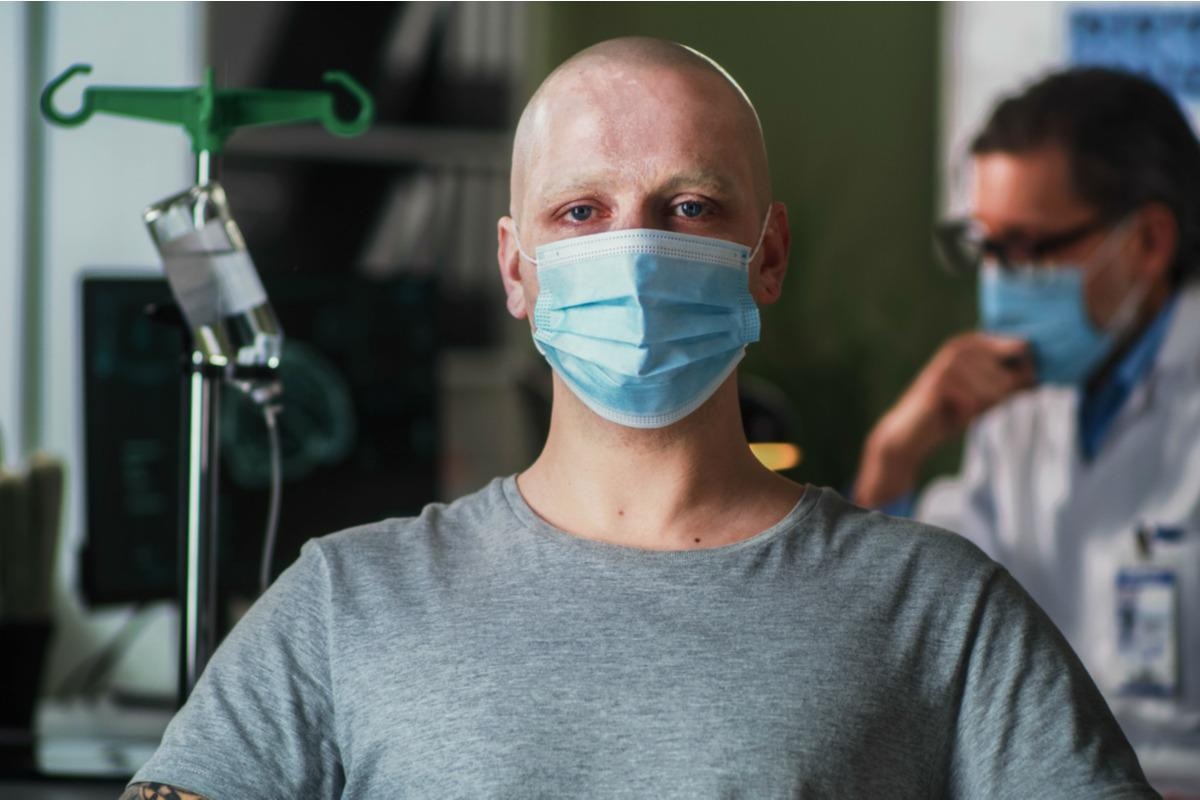The ongoing coronavirus disease 2019 (COVID-19) pandemic has been caused by the rapid outbreak of an RNA virus, namely, severe acute respiratory syndrome coronavirus-2 (SARS-CoV-2).
Since the onset of the pandemic in 2019, many SARS-CoV-2 variants have emerged due to genomic mutations. These variants have been classified as variants of concern (VOC) and variants of interest (VOI), in accordance with their higher rate of transmission and virulence relative to the original SARS-CoV-2 strain.
 Study: Adaptive immunity and neutralizing antibodies against SARS-CoV-2 variants of concern following vaccination in patients with cancer: the CAPTURE study. Image Credit: Frame Stock Footage/Shutterstock
Study: Adaptive immunity and neutralizing antibodies against SARS-CoV-2 variants of concern following vaccination in patients with cancer: the CAPTURE study. Image Credit: Frame Stock Footage/Shutterstock
Background
To date, all the available COVID-19 vaccines and therapeutics have been developed against the spike (S) protein of the original SARS-CoV-2 strain. Therefore, scientists have become skeptical about the efficacy of these vaccines against SARS-CoV-2 variants because they contain a number of mutations in the spike region.
Scientists reported that despite the increased number of COVID-19 cases globally, after the emergence of the Delta variant, vaccination has been able to control the rate of hospitalization and deaths.
Prior research has shown that vulnerable patients, e.g., the immunosuppressed, diabetic, and cancer patients, have been disproportionately affected by vaccine breakthrough infections. One previous study in England revealed the presence of strong S-reactive antibody responses and vaccine effectiveness against symptomatic COVID-19 in all vulnerable groups, except the immunocompromised.
Cancer patients are found to be at a higher risk of severe COVID-19 infection. Hence, this group has been prioritized for immunization against SARS-CoV-2. Researchers have pointed out that not much evidence is available regarding the immune response to COVID-19 vaccines in patients with cancer.
Additionally, very few studies on the efficacy of the vaccine among cancer patients, in terms of SARS-CoV-2 NAb responses and vaccine-induced T cell responses, are available. Also, the effect of previous COVID-19 infection on subsequent vaccine-induced immunity in cancer patients has not been reported. These data are extremely important to formulate strategies to protect cancer patients against SARS-CoV-2 infection.
A new study
Researchers have conducted a prospective, longitudinal cohort study to analyze COVID-19 immunity in patients with cancer. This study is called coronavirus disease 2019 (COVID-19) antiviral response in pan-tumor immune monitoring (CAPTURE) and is available in the journal Nature Cancer.
The study cohort constituted 585 cancer patients in the UK who received two doses of either the BNT162b2 or the AZD1222 vaccine. COVID-19 vaccines were administered twelve weeks apart. Scientists investigated if humoral and cellular immunity had been effectively elicited following COVID-19 vaccination in the CAPTURE study, especially in the context of SARS-CoV-2 VOC.
Key findings
Scientists reported that the seroconversion rates after two doses were 85% and 59% in patients with solid malignancies and hematological malignancies, respectively. One of the most important findings of this study was the detection of functionally relevant NAb against the Delta variant in 54% of infection-naive patients with cancer, which is significantly lower than the younger population without cancer. This finding shows that cancer patients, with low NAb activity, are vulnerable to the Delta variant. Additionally, the seroconversion assay revealed poor concordance with NAbT against VOC.
This study revealed that individuals with hematological malignancies have a higher tendency to have undetectable NAbT and had lower median NAbT, than those with solid cancers, against the SARS-CoV-2 original strain as well as VOC. Compared to healthy individuals, the study cohort revealed that patients with hematological malignancy, but without solid malignancy, had reduced neutralizing antibody (NAb) responses. Scientists observed a negative correlation between age and NAbT levels. They also found undetectable NAbT in patients who were under anti-CD20 treatment.
Scientists reported that cancer patients with previous COVID-19 infection showed robust NAb response against the SARS-CoV-2 original strain as well as VOC. Additionally, cancer patients who received two doses of vaccines were found to be sub-optimally protected against VOC. In terms of the optimal dosing schedule of the primary vaccination, scientists reported that shorter intervals, i.e., less than 12 weeks, between the first and the second dose could minimize the ‘at-risk’ period for patients with cancer. Importantly, vaccine-induced T cell responses were found in 80% of the patients and were comparable between cancer types.
Conclusion
The main strength of the current study is the large cohort, which enabled comparison across humoral and cell-mediated immunity against VOC. The authors believe that the findings of this study could help in the management of patients with cancer during the COVID-19 pandemic. They strongly recommended prioritizing cancer patients for booster vaccine doses, especially, those with hematological malignancies, followed by patients with advanced age.
In the future, the longitudinal evaluation will help determine the durability and nature of immune protection and the occurrence of breakthrough infection in the context of potentially waning antibody responses.